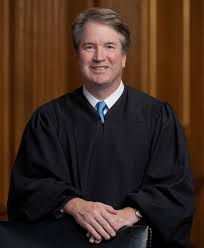Justice Kavanaugh Shapes Supreme Court’s Direction on Emergency Cases and Social Media Regulation

Recent Developments in Justice Kavanaugh’s Supreme Court Role
Justice Brett Kavanaugh has been working to rebrand the Supreme Court’s emergency docket, moving away from its colloquial name as the ‘shadow docket’ and noting that not all requests the justices handle are truly emergencies.
In recent appearances, Kavanaugh has emphasized the importance of maintaining civil and measured language in judicial writing, while addressing the challenges the court faces in managing emergency relief cases.
Social Media and Constitutional Rights
In a significant recent case involving social media platforms, Kavanaugh’s position proved crucial in a decision affecting companies like Facebook, X, and YouTube. While the ruling represented a procedural setback for these platforms in their argument that certain laws violate free speech rights, Kavanaugh’s concurrence suggested that the platforms would likely succeed in defending First Amendment rights in future proceedings.
Role as a Swing Vote
Kavanaugh has been described as the “median Justice” on the Supreme Court, with four justices more liberal and four more conservative than him. However, this positioning speaks less about his personal views and more about the conservative majority’s dominance on the current Court.
Approach to Emergency Cases
Regarding emergency cases, Kavanaugh has cautioned against writing extensive opinions, noting there can be a “danger” in providing too much detail. He explained that since emergency cases don’t represent final decisions on legal questions, detailed writing might prematurely reveal the justices’ thinking before cases are fully resolved.
Future Implications
Looking ahead, the Supreme Court’s calendar for October and November 2025 includes significant cases, with the re-argument of the Louisiana redistricting cases scheduled for October 15 standing out as a major upcoming event. Kavanaugh has acknowledged the “challenging circumstance” faced by the high court, particularly noting how congressional inaction has led presidents to implement their agendas through executive authorities, resulting in increased emergency docket requests.


